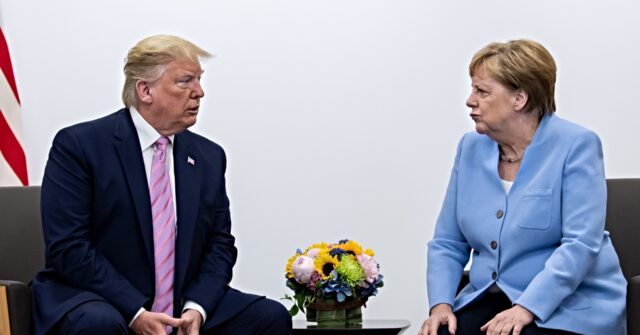In a recent interview with Germany’s Der Spiegel, former Chancellor Angela Merkel expressed her deep feelings of sadness regarding Donald Trump’s victory in the upcoming 2024 election. Her reflections, highlighted in advance of the publication of her memoir, emphasize her longstanding concerns about Trump’s approach to politics, particularly his binary view of winners and losers. Merkel has consistently critiqued politic strategies that neglect the principles of multilateralism, which she believes are crucial for effective governance. In her perspective, the inability to foster win-win scenarios poses significant challenges to collaborative efforts on a global scale.
Merkel elaborated on her concerns about the influence of powerful tech billionaires on political dynamics, particularly emphasizing the relationship between Trump and figures like Elon Musk. She articulated that the intersection of substantial wealth and political power represents a significant risk to democratic values and public interests. Her statement highlights a broader apprehension regarding the sway that corporate interests, driven by rich individuals, exert over political decision-making. Such interactions raise ethical questions about the extent to which private interests should exert influence over governmental processes.
Citing Musk as a representative figure, Merkel raised alarm about the implications of individuals wielding immense technological and capital power in governance. She referred to Musk’s significant ownership of satellites and Trump’s intentions to involve him in reimagining government efficiency, which she sees as an unprecedented challenge. Merkel’s concerns reflect a growing unease among politicians about the consolidation of power among a select few and the potential consequences of such arrangements for democratic institutions and public welfare.
Her memoir, titled “Freedom: Memories 1954-2021,” touches on themes relevant to her reflections in the interview — the balance between serving ordinary citizens and powerful elites. Scheduled for publication in multiple countries on November 26, the memoir is anticipated to offer insights into both her personal and political experiences, including the challenges posed by leaders who disregard collaborative governance. The release will coincide with an event featuring former President Barack Obama in the United States, where she may further discuss her perspective on current global political challenges.
Merkel’s critique of Trump extends beyond mere disappointment; it underscores her commitment to a political philosophy that prioritizes inclusivity and cooperation. Her views align with a broader conversation about the need for leaders to engage in dialogue that transcends partisan divides and fosters mutual understanding. She asserts that true political progress must involve the recognition of shared interests among diverse groups rather than an exclusive focus on conflict and competition.
In conclusion, Merkel’s reflections on Trump’s election highlight significant apprehensions regarding the trajectory of global politics in an era marked by individualism and corporate influence. Her insights resonate with ongoing discussions about the nature of power, governance, and the imperative of maintaining democratic principles in the face of emerging challenges. As societies grapple with the implications of such political outcomes, Merkel’s voice serves as a reminder of the delicate balance necessary to navigate the complexities of modern governance, emphasizing the importance of striving for win-win outcomes over division.

